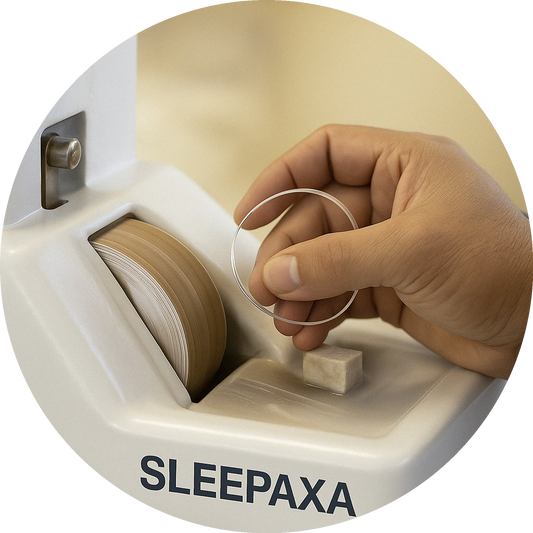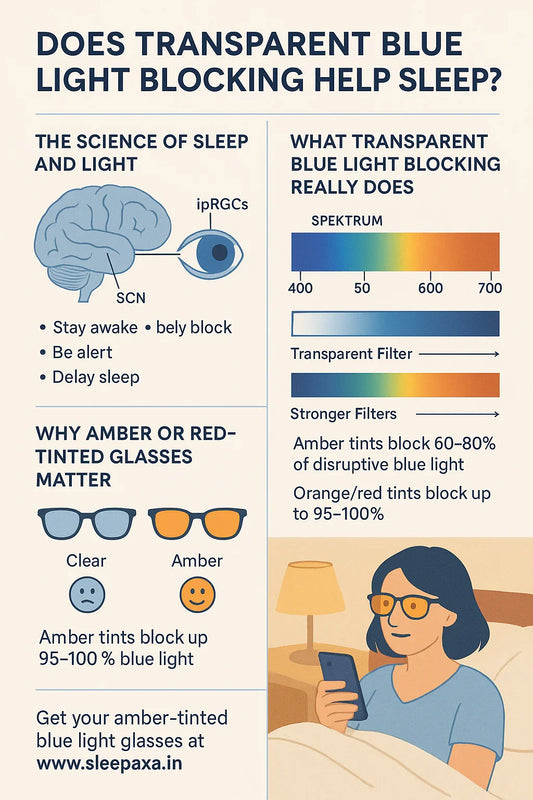
Why Migraine Happens: A Simple Explanation
Why Migraine Happens: A Simple Explanation
Migraine is a debilitating neurological condition that affects millions of people worldwide. It's more than just a headache – migraines can cause intense pain, nausea, and sensitivity to light and sound. Understanding why migraines happen is key to managing and preventing them. This blog breaks down the basic causes and triggers of migraines in a simple, easy-to-understand way, with references to trusted sources at the end.
What Is a Migraine?
A migraine is a type of headache that causes severe, throbbing pain, usually on one side of the head. It can last for hours or even days. Unlike a typical headache, migraines are often accompanied by additional symptoms like nausea, vomiting, and sensitivity to light (photophobia) or sound (phonophobia).
There are two main types of migraines:
1. Migraine Without Aura: The most common type, with no warning signs.
Why Do Migraines Happen?
The exact cause of migraines is still a mystery, but research suggests that they result from a combination of genetics and environmental factors. Here are the most commonly understood reasons why migraines happen:
1. Genetic Factors
Migraines tend to run in families. If one or both of your parents suffer from migraines, you are more likely to experience them as well. Studies show that genetic mutations can affect how your brain processes certain signals, making you more prone to migraines. Some genes associated with migraines regulate the flow of chemicals like serotonin that affect pain perception.
2. Brain Chemistry and Nerve Pathways
Migraine attacks are thought to occur when brain cells (neurons) become overactive, triggering the release of chemicals like serotonin and calcitonin gene-related peptide (CGRP). This leads to inflammation in the brain’s blood vessels, which can result in the intense pain of a migraine.
Serotonin, a neurotransmitter, plays a critical role in regulating pain. During a migraine, serotonin levels drop, which can cause blood vessels to swell and cause pain.
3. Changes in Brain Activity
Certain regions of the brain, especially the brainstem and thalamus, may be more sensitive in migraine sufferers. These parts of the brain are involved in pain regulation. During a migraine attack, abnormal activity in these areas can heighten pain sensitivity.
4. Hormonal Changes
Hormones, particularly estrogen, play a significant role in triggering migraines. Many women experience migraines around their menstrual cycle, pregnancy, or menopause due to fluctuating hormone levels. The drop in estrogen just before menstruation is a common trigger for menstrual migraines.
5. Triggers That Affect Migraine Occurrence
Certain environmental and lifestyle factors can trigger migraines in susceptible individuals. While triggers differ from person to person, some common ones include:
Stress: Emotional stress is one of the most frequent migraine triggers. When you're stressed, your body releases chemicals that cause blood vessels to constrict and then dilate, leading to pain.
Sleep Patterns: Both lack of sleep and oversleeping can provoke migraines.
Food and Drinks: Certain foods, like aged cheese, chocolate, and alcohol, can trigger migraines. Processed meats containing nitrates are also common culprits.
Weather Changes: Sudden changes in weather or barometric pressure can lead to migraines.
Bright Lights and Loud Sounds: People with migraines are often sensitive to sensory stimuli, especially bright lights (like from screens) and loud noises.
Dehydration: Not drinking enough water can lead to a migraine. Dehydration causes blood volume to drop, leading to decreased blood flow to the brain and resulting in pain.
How to Prevent Migraines
While migraines can’t always be prevented, knowing your triggers can help you avoid them. Here are some tips for reducing the likelihood of an attack:
Identify Your Triggers: Keeping a migraine diary can help you pinpoint what causes your migraines.
Maintain a Consistent Routine: Regular sleep, meal times, and stress management can reduce migraine frequency.
Hydrate: Drink plenty of water throughout the day to avoid dehydration.
Consider Medication: For chronic sufferers, preventive medications may help. Consult your doctor for recommendations.
References
Goadsby, P. J., Migraine: A Neurobiological Approach, Oxford University Press, 2013.
Lipton, R. B., The Migraine Brain: Your Breakthrough Guide to Fewer Headaches, Better Health, Free Press, 2009.
Silberstein, S. D., Migraine and Other Headache Disorders, Informa Healthcare, 2007.
American Headache Society, "Understanding Migraine: Causes, Triggers, and Treatment", American Headache Journal, 2018.
Blau, J. N., Migraine: Its Nature and Treatment, Oxford University Press, 2007.
Migraine is a debilitating neurological condition that affects millions of people worldwide. It's more than just a headache – migraines can cause intense pain, nausea, and sensitivity to light and sound. Understanding why migraines happen is key to managing and preventing them. This blog breaks down the basic causes and triggers of migraines in a simple, easy-to-understand way, with references to trusted sources at the end.
What Is a Migraine?
A migraine is a type of headache that causes severe, throbbing pain, usually on one side of the head. It can last for hours or even days. Unlike a typical headache, migraines are often accompanied by additional symptoms like nausea, vomiting, and sensitivity to light (photophobia) or sound (phonophobia).
There are two main types of migraines:
1. Migraine Without Aura: The most common type, with no warning signs.
- 2. Migraine With Aura: This type includes visual disturbances like flashing lights or zigzag lines before the headache starts.
Why Do Migraines Happen?
The exact cause of migraines is still a mystery, but research suggests that they result from a combination of genetics and environmental factors. Here are the most commonly understood reasons why migraines happen:
1. Genetic Factors
Migraines tend to run in families. If one or both of your parents suffer from migraines, you are more likely to experience them as well. Studies show that genetic mutations can affect how your brain processes certain signals, making you more prone to migraines. Some genes associated with migraines regulate the flow of chemicals like serotonin that affect pain perception.
2. Brain Chemistry and Nerve Pathways
Migraine attacks are thought to occur when brain cells (neurons) become overactive, triggering the release of chemicals like serotonin and calcitonin gene-related peptide (CGRP). This leads to inflammation in the brain’s blood vessels, which can result in the intense pain of a migraine.
Serotonin, a neurotransmitter, plays a critical role in regulating pain. During a migraine, serotonin levels drop, which can cause blood vessels to swell and cause pain.
3. Changes in Brain Activity
Certain regions of the brain, especially the brainstem and thalamus, may be more sensitive in migraine sufferers. These parts of the brain are involved in pain regulation. During a migraine attack, abnormal activity in these areas can heighten pain sensitivity.
4. Hormonal Changes
Hormones, particularly estrogen, play a significant role in triggering migraines. Many women experience migraines around their menstrual cycle, pregnancy, or menopause due to fluctuating hormone levels. The drop in estrogen just before menstruation is a common trigger for menstrual migraines.
5. Triggers That Affect Migraine Occurrence
Certain environmental and lifestyle factors can trigger migraines in susceptible individuals. While triggers differ from person to person, some common ones include:
Stress: Emotional stress is one of the most frequent migraine triggers. When you're stressed, your body releases chemicals that cause blood vessels to constrict and then dilate, leading to pain.
Sleep Patterns: Both lack of sleep and oversleeping can provoke migraines.
Food and Drinks: Certain foods, like aged cheese, chocolate, and alcohol, can trigger migraines. Processed meats containing nitrates are also common culprits.
Weather Changes: Sudden changes in weather or barometric pressure can lead to migraines.
Bright Lights and Loud Sounds: People with migraines are often sensitive to sensory stimuli, especially bright lights (like from screens) and loud noises.
Dehydration: Not drinking enough water can lead to a migraine. Dehydration causes blood volume to drop, leading to decreased blood flow to the brain and resulting in pain.
How to Prevent Migraines
While migraines can’t always be prevented, knowing your triggers can help you avoid them. Here are some tips for reducing the likelihood of an attack:
Identify Your Triggers: Keeping a migraine diary can help you pinpoint what causes your migraines.
Maintain a Consistent Routine: Regular sleep, meal times, and stress management can reduce migraine frequency.
Hydrate: Drink plenty of water throughout the day to avoid dehydration.
Consider Medication: For chronic sufferers, preventive medications may help. Consult your doctor for recommendations.
References
Goadsby, P. J., Migraine: A Neurobiological Approach, Oxford University Press, 2013.
Lipton, R. B., The Migraine Brain: Your Breakthrough Guide to Fewer Headaches, Better Health, Free Press, 2009.
Silberstein, S. D., Migraine and Other Headache Disorders, Informa Healthcare, 2007.
American Headache Society, "Understanding Migraine: Causes, Triggers, and Treatment", American Headache Journal, 2018.
Blau, J. N., Migraine: Its Nature and Treatment, Oxford University Press, 2007.
Tags:
Previous
Understanding Migraine Triggers: How Light Sensitivity Can Spark Migraines and How FL-41 Glasses Provide Relief
Next
Understanding the Relationship Between Circadian Rhythm and Blue Light













